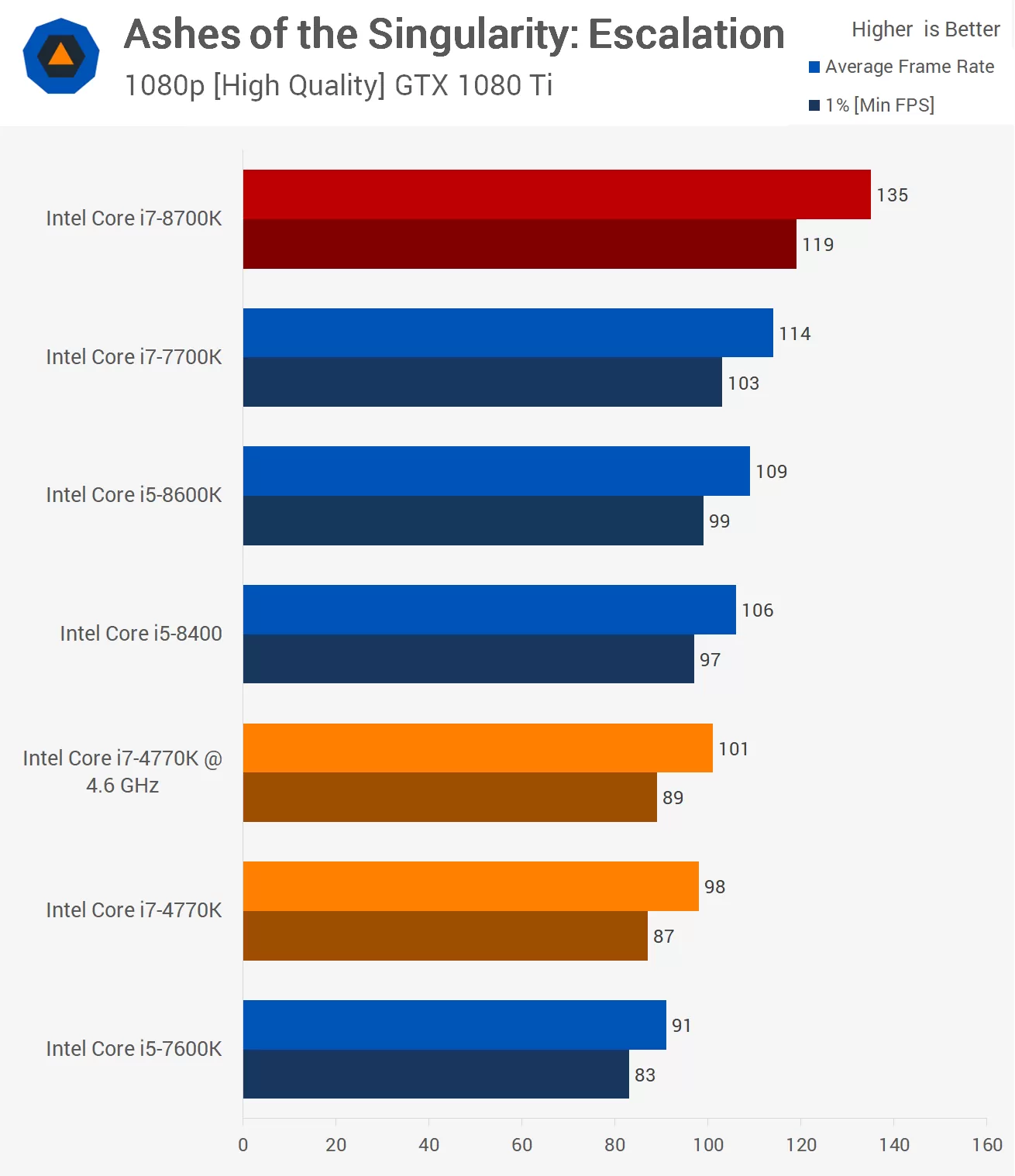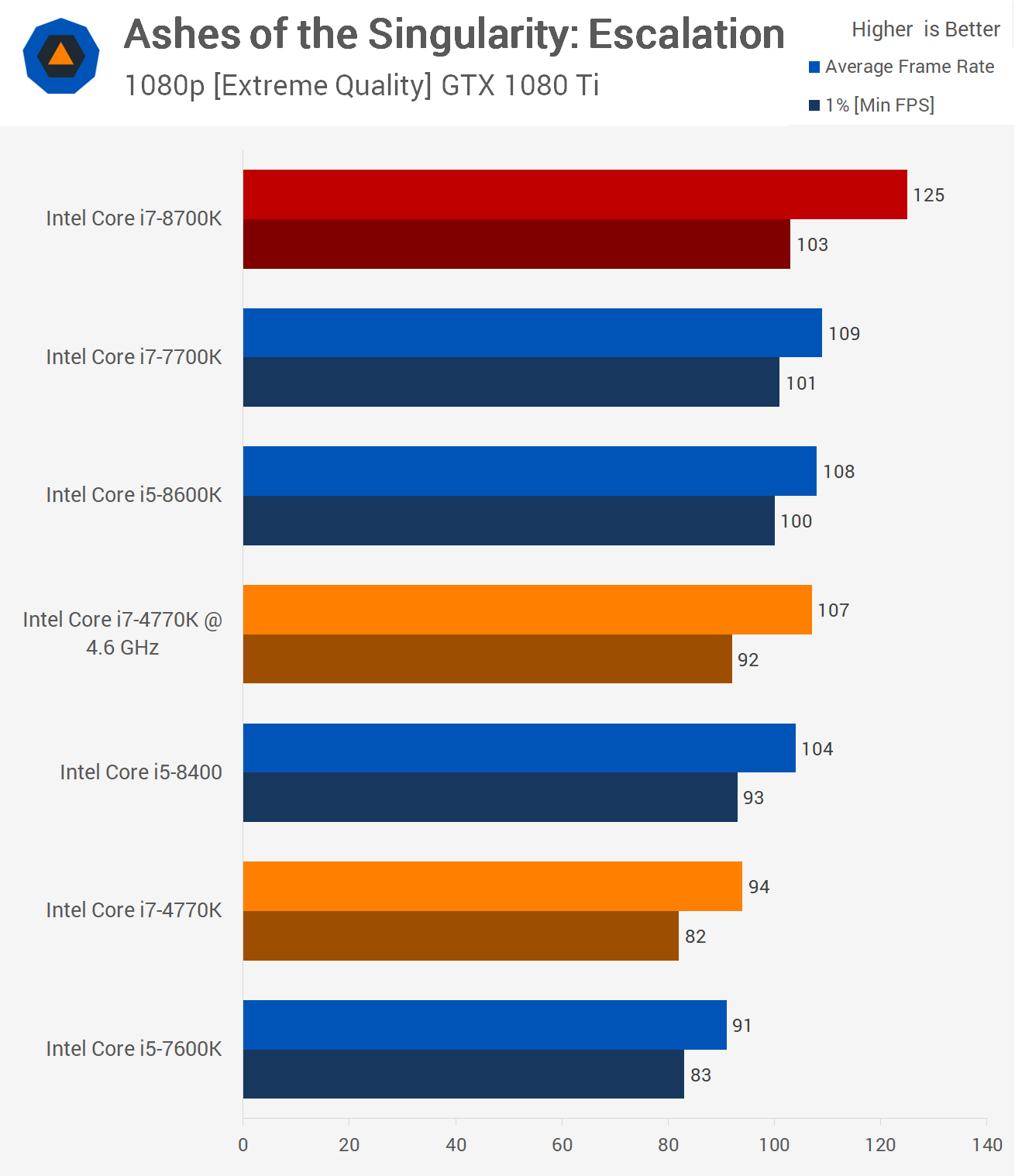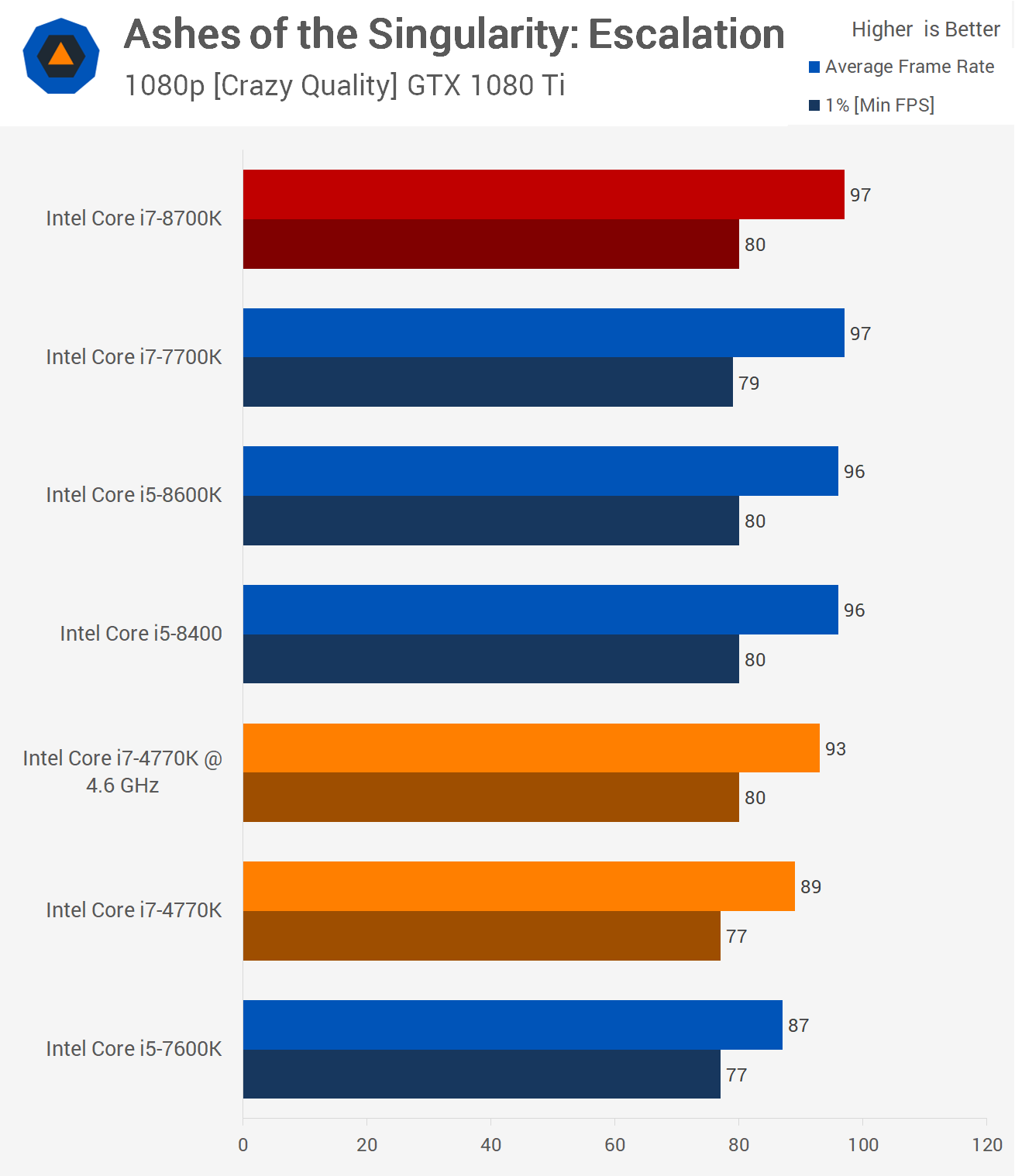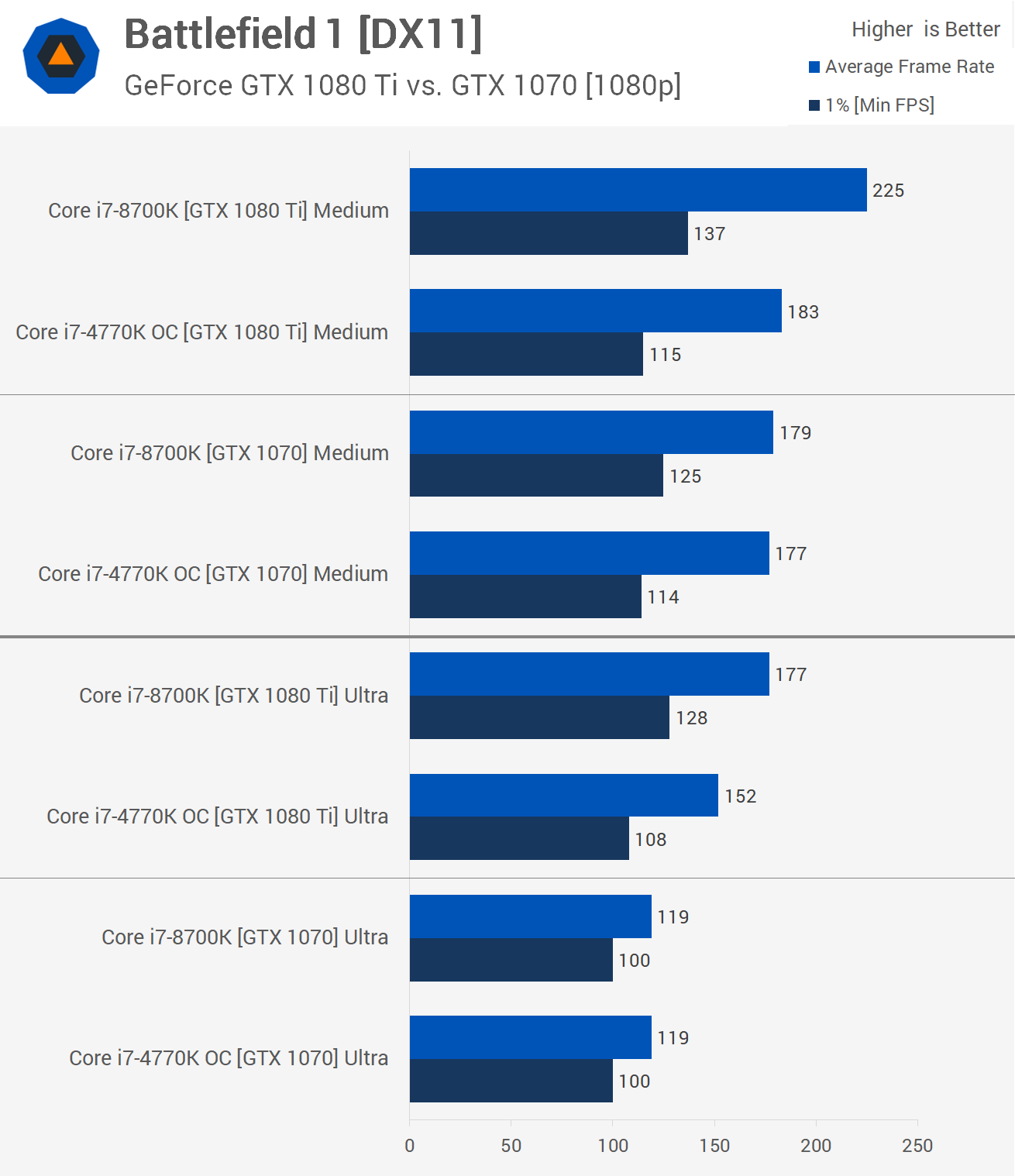Guess What?
After wading through that heap of results, what's the verdict? In short, no, for gamers it's not worth upgrading from a fourth-gen Core i7 processor to the latest and greatest six-core, eighth-gen Core i7s. We're not seeing scenarios where a quad-core with Hyper-Threading can't deliver playable performance, in fact we're not even seeing scenarios where it's on the edge.
Benchmarking was mostly conducted with the GeForce GTX 1080 Ti, which is currently the world's fastest gaming GPU. We tested titles 1080p and for the most part we weren't maxing out the visual quality settings, so in our opinion these results really show a realistic worst case – worst case would be a lower resolution with lower quality settings.

So let's talk realistic settings with a GTX 1080 Ti. Ashes of the Singularity is a good example for this because it fully utilizes six-core/12-thread processors and here the 8700K was quite a bit faster than the 4770K, even with the old fourth-gen Core i7 overclocked. The average frame rate was almost 33% greater for Intel's new chip, which is an incredible difference and honestly more than I was expecting to see.

Using the same GPU with the extreme quality preset reduced the 33% margin to 17% as performance became more limited by the 1080 Ti. That's not the highest visual quality preset however, which we also decided to test.

When running Ashes of Singularity on 'crazy' quality, the 8700K comes out on top but only by 9% and that's thanks to the game's ability to take full advantage of higher end CPUs. This is really a best case result for the chip because most titles would see no difference performance using high quality settings. Total War: Warhammer II for example completely neutralizes the field when using the 'ultra' preset.
While it's easy to get caught up in the CPU limited benchmarks, the reality is that most gamers will be far more GPU limited. Remember, we're using a GTX 1080 Ti so even if you're the kind of gamer that will turn the quality settings down a little to boost graphics performance, doing so with a GTX 1070 for instance will still result in a GPU limited scenario, unless you go excessively low that is.

For example, I went back and tested Battlefield 1 using the GTX 1070 and compared the results to the GTX 1080 Ti using both the 'medium' and 'ultra' quality presets. At the top of the graph you can see both CPUs compared when equipped with the 1080 Ti using the medium quality settings and here the 8700K is 23% faster on average and 19% faster for the 1% low result.
Swap to the GTX 1070 and now the 8700K is just 1% faster on average and 10% for the 1% low but again we're only using medium quality settings. Increasing visual quality with the 'ultra' preset and therefore GPU load, the 8700K was just 16% faster on average with the 1080 Ti and 19% faster for the 1% low.
The truly telling result can be seen when using the 'ultra' preset with the GTX 1070, at which point there is no distinguishing between the 8700K and 4770K, and you'd likely get the same results without overclocking the fourth-gen Core i7.
In short, no, for gamers it's not worth upgrading from a fourth-gen Core i7 processor to the latest and greatest six-core, eighth-gen Core i7s.
As a side note, you can of course overclock the 8700K for greater performance when not GPU bound, but as we mentioned, gamers are almost always GPU bound with high-end Core i7 CPUs. We hope that addresses questions about why we haven't complicated things by also overclocking the 8700K.
To reiterate, we don't think upgrading from either the 4770K or 4790K to the 8700K is worthwhile and for the most part gamers wouldn't even notice the difference. Although decent gains were seen at times with the GTX 1080 Ti, you have to be playing at 1080p without upscaling or heavy anti-aliasing for example. There's also the fact that for those spending $700 on a graphics card, buying a new CPU, motherboard and memory combo isn't a big deal anyway.
Most gamers will be using mainstream cards on up to the GTX 1070 and as we just saw the circumstances where the 8700K will offer any kind of gain here is rare.
Lastly, what about those looking to upgrade from a Core i5-4670K or 4690K? In our opinion, either buy a second-hand Core i7 or upgrade the entire platform and go with a Coffee Lake CPU, assuming you could buy one at or around the MSRP.
Personally, I'd look for a second-hand Core i7 processor. They're currently selling for between $150 and $200 on eBay with 'Buy it now' listings priced between $220 and $250. Considering that the 8700K has an MSRP of $360, it's a much more costly endeavor to buy one of these in addition to a Z370 motherboard and DDR4 memory.
Upgrading to the Ryzen 5 1600 is more cost effective but even then you're not gaining anything when it comes to gaming performance. It will likely be a few years before the true value of these six-core/12-thread CPUs will be realized. That said, if you do anything else with your PC, as in productivity type work, maybe video encoding, then the Ryzen 5 1600 would be a worthwhile upgrade or perhaps even the Ryzen 7 1700.
Shopping Shortcuts:
